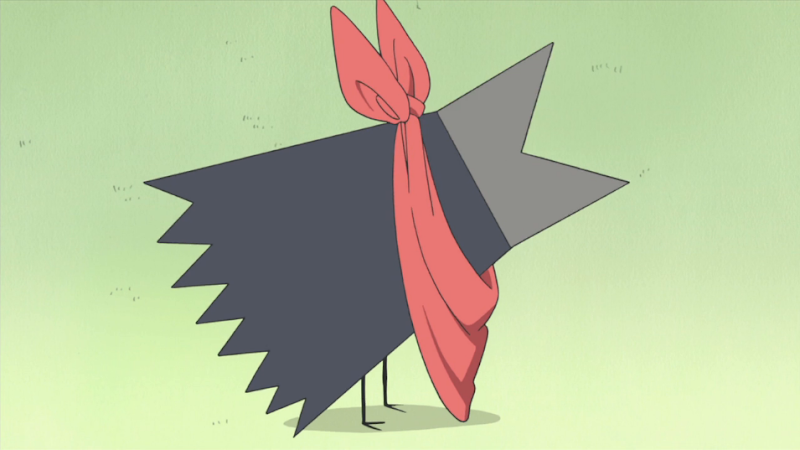The point of the prisoner’s dilemma is how we are prone to cooperate with others even when it’s to our advantage to betray the other guy (even when it’s a stranger, or someone we don’t like too much.)
Partially, because fuck cops. Whether we’re arrested by law enforcement or Nazis (or are wolves fighting off a bear), we hate the bastards more than we distrust our fellow heister.
But as I hinted above, our instinct to stay loyal has evolved since long before we walked upright. Think of the prisoner’s dilemma as a recurring thing (because it is, even if the exact specific circumstances are not repeated) the tribe stays more coherent, and more survive if we don’t leave our fellow dwarves behind (Rock and Stone!). If we left our buddies to die rather than risk ourselves to rescue them, we’d run out of buddies.
So we never take the deal. Besides which, in the US, you can’t trust law enforcement anyway. They are legally allowed to lie to you to secure a confession, even a false one. And they will. Shut up and ask for your lawyer.
You get at the heart of what makes the prisoners dilemma interesting.
When you play the game once, betrayal makes sense. Yes, cooperation might be better but the juice isn’t worth the squeeze. No consequences, tragedy of the commons, etc
If you play on repeat, you need a strategy. It generally comes down to: Do you penalize someone for betraying you?
Like you said, if the game is repeatedly for infinity, then cooperation makes the most sense. Betrayals are punished at a cost higher than the betrayers reward. Altruism prevails.
if the game is played on repeat until a known endpoint, then it gets complicated. It makes sense to betray the last game: you can’t be punished for betraying on that last game. And even if you don’t want to betray, strategically the other player also knows the betrayer has an edge in this case if they don’t also betray. So the last game should be a double betrayal.
And with that leap, it also makes sense to betray in the second to last game, since there’s only a gain if you betray without being betrayed, and the last game’s outcome is already double betrayal. Now the logic is betray the last two games. And so on, etc, and the whole thing unzips.
Now cooperation is irrational and selfishness prevails.
Thus, altruism works when the elders plant trees to make shade they won’t feel. But if one side thinks the game will end, or fears the other does, then the whole thing falls apart.
Interesting. Is there an evidence based way to look at the trolley problem too or is it just to removed from reality to be able to do that? I always feel the trolley problem gets far too much attention in relation to is actual applicability.
At its core, the Trolley Problem is a paradox of deontological ethics, that is codes based on creed.
Note that Batman is always framed to choose You can save Robin, or these five innocents, but don’t have time for both and then he usually chooses a third option. (And never has to kill Robin to save anyone and then process breaking his code.) It’d be super neat to see Batman in a situation where he has to make a harsh choice and see how he processes it. Comics are not often that brave.
Note that deontologist ethicists struggle with lying to Nazi Jew-hunters to protect Jewish refugees ( Once upon a time in Nazi-occupied France… ) Kant, who was pre-German-Reich confronted the murderer at the door but his justifications to go ahead and direct the killer to his victim didn’t feel entirely sound to his contemporaries.
But the Trolley problem is less about a right answer and more about how the answer changes with variations. Most people find it easy enough to pull the lever in the basic scenario, but will find it more challenging to, say:
-Carve up a stranger to harvest him for organs so that five transplant patients can live
-Take up the offer of militants in an undeveloped country to spare a band of refugees from summary execution, if you would personally choose and kill one of them, they’ll let the rest go free.
The scenarios are meant to illustrate we are informed regarding our moral choices based on how we feel rather than by any formula or code or ideology. Only when the stakes get super high (e.g. evading nuclear holocaust or considering eating our dead in Donner pass) do we actually invoke intellectual analysis to make moral decisions.
Edit: Completed a thought. Fixed markup.
The way I was taught the trolley problem was to explain the vulnerabilities of AI in decision making if we didn’t consider the rival’s strategy. The issue is that regardless of what the rival does, betraying is more profitable on average.
If the rival stays silent, betraying is best for us, and if they betray us, betraying is again the best move. If we consider the average scores, betraying is always the best move. However, if we cooperate, both remaining silent is the best overall, but this requires a more sophisticated AI.
The trolley problem and the prisoner’s dilemma are both thought experiments from before we were talking about AI programming. Yes, some people who are not familiar with AI try to contemplate how they might inform AI. German officials have suggested that maybe vehicle AI should be regulated to regard all lives as equal when choosing which to hit but such code would inform so few situations that it’s a waste of time and effort to focus on it.
As for the prisoner’s dilemma, the question is not which is the right choice or how to beat it. Considering the investigation into the US regarding Trump’s retention of national security material, and the investigation into the January 6th raid on the US Capitol, and related efforts by Trump to retain power despite losing the election, we’re watching plenty of incidents in which people choose to betray their fellow conspirators for personal lenience.
But what is curious, and the reason why the Prisoner’s Dilemma is regarded as a paradox is that most humans will not betray their fellow heister, even when it benefits them more to do so than not. And the current going theory as to why has to do with an evolved sense of loyalty to one’s tribal mates. It served us when we were small predators fighting off larger predators. When a buddy was cornered, rather than flee to save our own skin, we have an instinct to harass to save our buddy, even when it risks our own lives.
Infamously, Frank Gusenberg, contract killer and victim of the St. Valentines Day massacre had been shot fourteen times at the incident, and yet when the feds asked him, he replied Nobody shot me. He died from his wounds shortly thereafter. It’s a common problem when investigating inter-gang crimes that witnesses won’t even betray members of rival gangs, let alone members of their own crew.
Cool extension of the problem to incorporate the prisoner’s dilemma!
How many loved ones do these people think I have. Like, I got maybe 4 people I consider loved ones, and one of those is my fishing buddy.
sorry cousin Nate
deleted by creator
Pull my lever first! Let the other person worry about killing everyone…
Isn’t the point of the prisoner dilemma that isn’t always better for you to do the bad thing but it’s best for all if both don’t?
Which is exactly this - the bad thing is to pull the lever and kill two extra people. It’s not as bad for you, like in the prisoners dilemma, since they’re not known to you. The best thing for all is for no one to pull a lever and you each lose one loved one rather than all your loved ones.
I cant imagine I’d pull even if I was the one on the tracks.
Great addition to the original problem though.
Too much grief is risked my pulling. No pull
I would pull the other guys lever and let the track do its thing
in the picture, the switches are broken and will just derail thr cars






